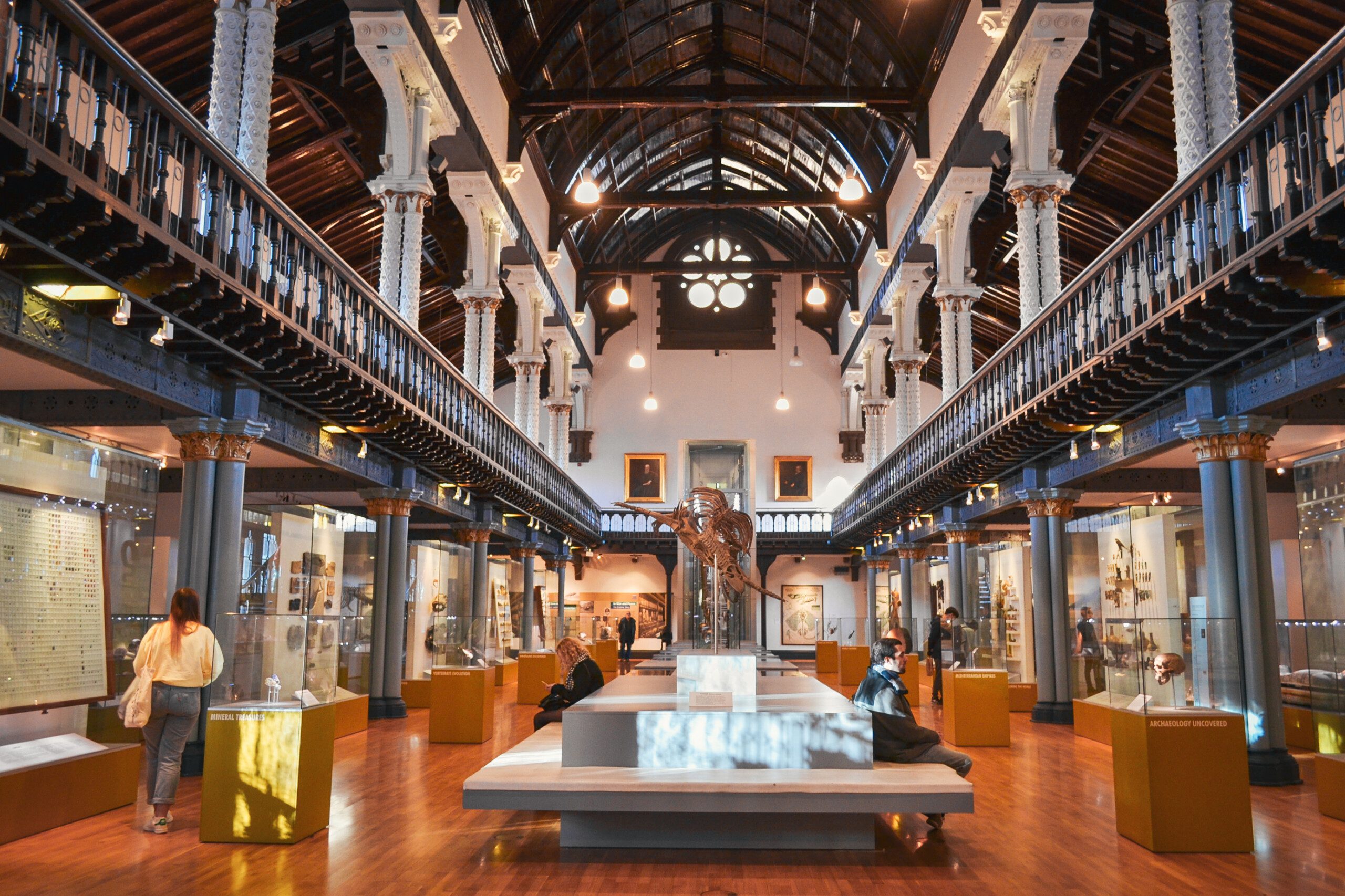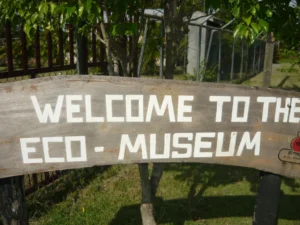Anthropologist: Reference scheme

Scheme B) Profession not regulated but built with (non-binding) regulatory references
The reference scheme is based on the 'modelSkills Cycle' and is in line with the 'Tourism, Arts, Heritage Competence Framework (TAH-CF)'. the TAH-CF is defined in accordance with the European Qualifications Framework (EQF), the Recommendation of the European Parliament and of the Council 2009/C 155/02 (ECVET) and the APNR (Non-Regulated Professional Activities) scheme adopted by UNI for the technical standardization of unregulated professions.”
Description
PPC3: Anthropologist (VI-VII-VIII EQF Level)
The physical anthropologist carries out identification, knowledge, protection, management, valorisation, research, training and education activities relating to anthropological and paleo-anthropological assets.
It is a profession of high intellectual content and considerable complexity, which is carried out both in public and private institutions and as self-employed workers. It requires specific cultural, scientific, methodological, technical and ethical training, obtained through educational, training and refresher courses of a theoretical and practical nature.
Standards of Reference
- European Qualification Framework (EQF)
- Recommendation 2009 / C 155/02 (European Credit System for Vocational Education and Training - ECVET)
- Law 4/2013 relating to non-regulated professions
- Ministerial Decree 244 of 20/05/2019 of the MIBACT - annex 1
Specific tasks and activities (from Ministerial Decree 244 of 20/05/2019)
The fundamental tasks of the demoethnoanthropologist are:
- A. Identify, analyze and document anthropological and paleo-anthropological assets.
- B. Protect and conserve anthropological and paleo-anthropological assets.
- C. Direct museums and places of culture and curate collections and exhibitions of anthropological and paleo-anthropological interest.
- D. Carry out study, research, scientific and popular publication, advanced training, teaching and education activities in the field of anthropology, paleo-anthropology and similar and related disciplines.
Each of these tasks characterizes the profile of the physical anthropologist and groups together the activities that the professional is called upon to carry out, even if with different degrees of responsibility or specialization based on the three bands (I, II, III) into which the profession has been divided. qualification in accordance with EQF levels 8, 7 and 6. A physical anthropologist, respectively of band I, II and III, is someone who has a profile compliant with these tasks and carries out or has the preparation to carry out at least two of the activities that characterize the respective band.
Carrying out activities under coordination, typical of the activities characterizing the III band, does not allow operational autonomy in the intervention on the Properties.
For the activities, please refer to Annex 1 of Ministerial Decree 244 Physical Anthropologist
Profile Evaluation Criteria
To certify the possession of skills, it is proposed to take into consideration methodologies that take into account the following aspects in a non-mutually exclusive manner, i.e. possibly in combination with each other:
- Qualifications awarded in the academic field (Formal Learning)
- Specific Training (Non-Formal Learning)
- Work or Professional Experience (Informal Learning)
Work or professional experience can be demonstrated through various tools including:
- Curriculum Vitae
- Professional portfolio
- Objective placement on the market (awards, regional, national or international recognition)
- Publications (scientific or editorial)
Requirements for access to the professional figure
Since the professional figure is not organized in an order or college, the requirements may vary based on the relevant Professional Association or other criteria established by the individual interested parties.
Below are the requirements adopted by AIPTOC - Italian Association of Tourism Professionals and Cultural Operators.
To certify possession of the skill requirements relating to the profession, the information indicated in Ministerial Decree 244 is attached
Anthropologist I Band 8 EQF level
- Five-year degree in Biology or four-year degree in Natural Sciences, with a thesis in a discipline of the SSD BIO 08
OR
- Specialist or Master's Degree in (LM1) Cultural Anthropology and Ethnology, (LM2) Archaeology, (LM6) Biology, (LM9) Veterinary and Pharmaceutical Medical Biotechnologies (group: Human Sciences and Public Policies), (LM11) Conservation and Restoration of Cultural Heritage (band: Earth and Natural Sciences), (LM41) Medicine and Surgery (band: Human and Political Sciences, Health and Healthcare Management), (LM55) Cognitive Sciences (band: Neurological and Cognitive Sciences), (LM60) Natural Sciences (band: Biological Disciplines), (LM75) Technical Sciences. of the Territory (group: Biological Disciplines), and with a thesis in Anthropology and Paleoanthropology or in any case in a discipline of the SSD BIO 08.
OR
- Four-year degree in Literature, Literature and Philosophy or Cultural Heritage or Conservation of Cultural Heritage with an anthropological focus (SSD BIO 08) with completion of the thesis in a discipline of the SSD BIO 08.
INTEGRATED BY
Achievement of a PhD in Anthropological or Paleoanthropological disciplines, plus at least 24 months, even non-continuous, of documented professional experience (which also includes internships completed in said second and third level training within the activities characterizing the profile).
EQUIPULENCES
For all access methods, the specialist or master's degree can be replaced by a research or second level master's degree lasting two years or two annual master's degrees, of which at least one is a second level degree with a final paper in the fields of anthropology or paleo-anthropology (SSD BIO 08) also obtained abroad, or from the first two years of a Research Doctorate in anthropology or paleo-anthropology (SSD BIO 08) immediately after the three-year degree obtained abroad, if the duration of this Doctorate is at least five years.
Anthropologist II Band 7 EQF level
Five-year degree in Biology or four-year degree in Natural Sciences, with a thesis in a discipline of the SSD BIO 08, Specialist or Master's degree in (LM1) Cultural Anthropology and Ethnology, (LM2) Archaeology, (LM6) Biology, (LM9) Veterinary and Pharmaceutical Medical Biotechnologies (group: Human Sciences and Public Policies), (LM11) Conservation and Restoration of Cultural Heritage (group: Earth and Natural Sciences), (LM41) Medicine and Surgery (group: Human Sciences and Policies Health and Healthcare Management), (LM55) Cognitive Sciences (band: Neurological and Cognitive Sciences), (LM60) Natural Sciences (band: Biological Disciplines), (LM75) Technical Sciences of the Territory (group: Biological Disciplines), and with a thesis in Anthropology and Paleoanthropology or in any case in a discipline of the SSD BIO 08.
OR
Four-year degree in Literature, Literature and Philosophy or Cultural Heritage or Conservation of Cultural Heritage with an anthropological focus (SSD BIO 08) with completion of the thesis in a discipline of the SSD BIO 08.
INTEGRATED BY
at least 18 months, even if not continuous, of documented professional experience (which also includes internships completed in said second level training), within the scope of the activities characterizing the profile.
EQUIPULENCES
For all access methods, the Specialist or Master's Degree can be replaced by a research or XNUMXnd level Master's degree lasting at least two years or two annual master's degrees, of which at least one of a XNUMXnd level degree with a final paper in the fields of anthropology or paleo-anthropology, obtained also abroad.
Anthropologist III Band 6 EQF level
Three-year degree in (L1) Cultural Heritage, (L6) Geography, (L10) Literature, (L13) Biological Sciences, (L19) Educational and Training Sciences, (L22) Active Sciences. Motor and Sports, (L32) Sciences Technologies for the Environment (formerly Natural Sciences), (L43) Conservation Techniques. Heritage Restoration, with an anthropological focus, with a minimum number of credits in disciplines related to anthropology and paleo-anthropology (BIO 08) and corresponding to 24 CFU and with a final paper supported in these disciplines
INTEGRATED BY
at least 18 months, even if not continuous, of documented professional experience, in the context of the activities characterizing the profile.
-
Related searches on the Skills Archive Databases (UNDER IMPLEMENTATION)
Training courses that release the professional competence in question: PPC courses3
Professionals with the relevant professional competence: PPC Professionals3
Featured Heritage Interpretation
Featured training
Basic courses
High Specialization Courses





















